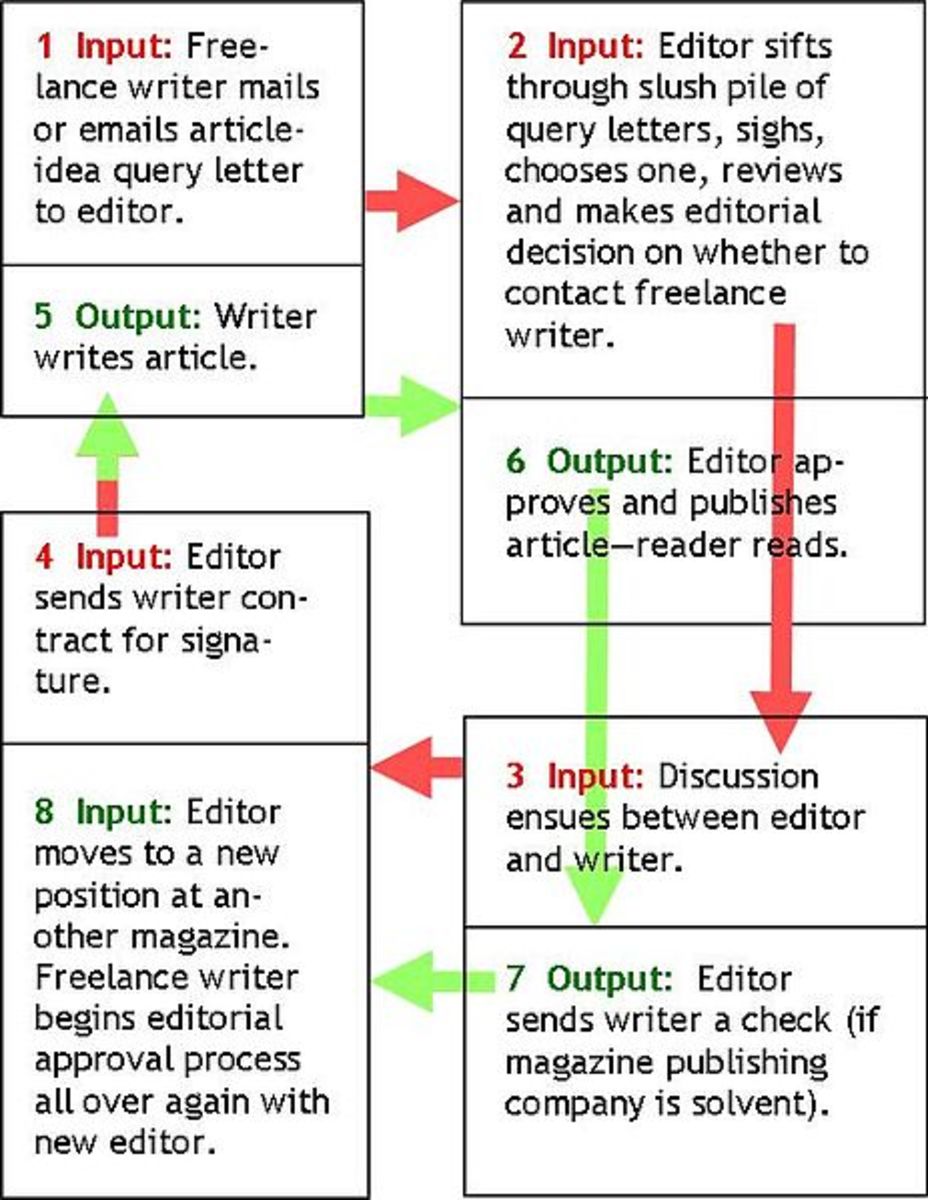- HubPages»
- Books, Literature, and Writing»
- Commercial & Creative Writing»
- Making Money as a Writer
Finding Freelance Writing Jobs: How to Recognize Freelancing Scams

Do You Know How to Pick Freelance Writing Jobs?
Freelance writing jobs give people from all parts of the world the freedom to make money from home and participate in a range of intriguing, challenging and stimulating projects. The problem with freelance writing, however, is that many clients are willing to pay solely pennies (or absolutely nothing) for the work of writing professionals. Here are some of the most common freelance job scams and the best ways to recognize those.
Introduction
Freelance writing opportunities abound. You can work with clients from all parts of the world, you can build an impressive portfolio and even quit your day job!
Most beginners in the niche start from freelance writing websites. These are the perfect option for discovering new customers and negotiating the perfect conditions. Sooner or later, however, beginners will come across problematic job offers, including ones that appear too good to be true. Multiple scenarios exist and all of them cause freelancers to lose money or to provide sensitive personal data that could be used in malicious ways.
In the beginning of my freelance writing career, I accepted a project that was supposed to pay the incredible sum of 400 dollars! At the time, it seemed like an amazing offer. I wrote the first pieces and the client asked me to keep on going. The payment was supposed to be provided at the end of the project. Upon the completion of all the texts, the client disappeared. I could no longer find them on Skype and nobody picked the phone. This is a simple example of a freelance writing scam that multiple writers have had to deal with. I am going to discuss some of the most common job scams and hopefully, I will prevent other writers from falling in the same trap.
The Client that Wants to Pay at the End
Many clients want freelancers to provide a project quote. Rather than working on a per-hour basis, writers get paid upon the completion of the project.
This is one of the most common and most typical freelance writing scams that writers have to deal with. Once the project is completed, the client disappears. The freelancer has no way of contacting that person, especially if the freelancer lives in a different country.
Asking for upfront payment is the only way to stay on the safe side. Clients that are willing to provide a part of the sum in advance are serious about working with the particular freelancer and making the payment. You should get in the habit of always asking for an upfront payment of at least 20 percent.

The Free Writing Sample
Providing a project sample is a common practice. After all, clients have to make sure that a particular writer is the right person for the job.
It starts getting questionable when clients ask for free and highly customized samples. A sample should always be paid for, even if the amount is smaller than the price of the actual project. Imagine a client getting 20 different free samples from 20 different freelance writers. Such an approach enables the client to complete a massive project without paying a cent.
Building an online portfolio and giving clients a link to it is a great opportunity. This way, clients will get a good idea about your writing style and you will be free from having to provide a free sample each time you start to work with somebody new.

Work Outside a Freelance Writing Website
Do you use a freelance writing website like Odesk or Guru? This website gives you some guarantee that you will get paid after completing the project.
Clients are aware of this fact and some of them will often ask you to complete work outside the freelance writing platform. They will promise to pay via PayPal or a wire transfer once the job is done. Some clients will be honest and they will pay. Others will take advantage of naïve writers.
The freelance writing website will protect you, especially if you lack the experience and the negotiation skills to communicate with clients directly. Keep work inside the portal in the beginning. Once you get to know a customer better, you will be free to start communicating with each other directly.
Freelance Writing Scams: The Job Poll
If you have some freelancing experience, you have come across this freelance writing gig at least once. Many potential clients will ask you to fill out a short survey, which is perfectly acceptable. Some of these surveys, however, have a range of strange questions.
There could be surveys asking for too much personal information. They will inquire about your income, the payment systems that you use and even about your credit card (or social security) number. It is easy to see how these surveys can make you lose money and endanger your privacy.
Avoid filling out such surveys. Clients can have their questions answered in an email or during a Skype conversation. What is the purpose of a survey like that? They add nothing to the communication between the two parties involved.

Paying to Get VIP Job Offers
Reputable freelance writing websites are free to join. There are some paid-for communities but you can easily avoid those.
Certain freelance writing websites have a significant membership fee or they will require a payment to give you access to job offers. You pay for access to VIP job offers. You sit and wait. Nothing happens and you simply lose your money.
Go through the terms and conditions before joining any website. Any additional charges and fees should be mentioned there and be part of the sign-up agreement. Additional charges that are not mentioned and ambiguous conditions are certain signs of something shady.
Conclusion: Protecting Yourself from the Common Freelance Writing Scam
Freelance writers enjoy so much freedom and many amazing possibilities. Being a freelance writer can make your dreams come true, especially if you are passionate about texts.
The beginning can be tough and I am the living proof. My struggle continued for a period of one year, after which I managed to build solid and long-lasting relationships with a number of fantastic clients. Before this happened, however, I was fooled by “too good to be true” offers several times. I lost a lot of money because I was naïve and I wanted to make a lot of money fast.
Stay on the safe side by avoiding offers that promise an amazing payment. Always research clients before agreeing to anything. You should be capable of verifying a client’s identity and finding information about the company this person represents. If your instincts are telling you that something is wrong, you should probably look for a job opportunity elsewhere. Take your time to do research and to find reputable clients. You will be off to a slow start but you will be safe. Good luck!
© 2014 vily_far








